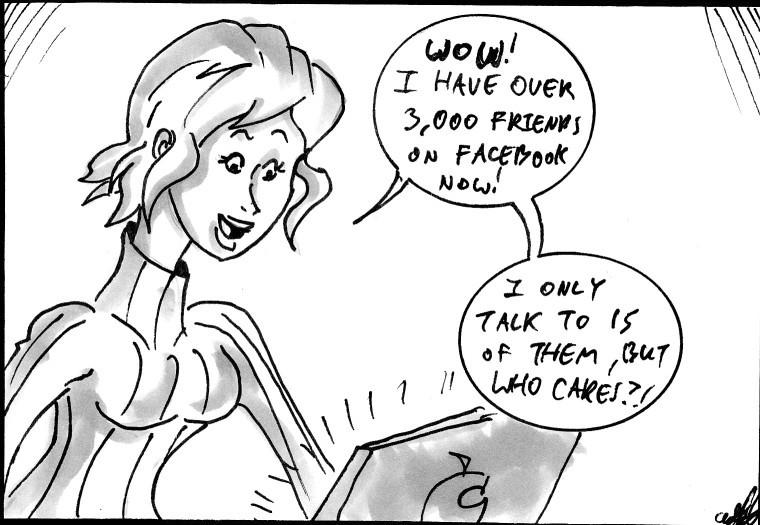Back in my day, college social lives were not on Facebook
October 12, 2010
Running the risk of dating myself, I would like to preface this column by stating that I was lucky enough to experience one whole college semester (fall 2004) before I even knew what Facebook was.
By the time I had given in, it was “thefacebook.com,” only college students could join, and sappy emo kids were still using MySpace and LiveJournal as their primary means of telling the world how sad they were.
Now, after a few years, millions of more members, and a box office Hollywood hit, I believe I have a sufficient amount of ethos to let you know about a couple of ways that this social network phenomenon has changed the way we interact with each other.
The first way that such media has fundamentally transformed the college social experience is the way in which we consciously attempt to construct our personal identities.
“I think it’s a lot like keeping a diary,” said Rachel Kowalczyk, senior history major and one of approximately 12 Americans who has yet to join the network. “It’s a way of cataloguing what’s important to you: activities and friends and photos and statuses and likes. But it’s public information, so it doesn’t help you develop your identity like journaling does. You’re self-censoring because you know people can look at it.”
It is not just your friends and random strangers that you have to worry about keeping tabs on your status updates. Much to the chagrin of pretty much everyone else, parents are joining Facebook at an alarming rate, while potential employers are routinely running background checks by browsing your photo albums. Consequently, students have to think twice before making their internet proclamations of another Tuesday morning hangover.
In addition, digital cameras have become the social equivalent of loaded guns. In my lone nostalgic, pre-Facebook semester, taking goofy and borderline risque pictures was a pastime. Now that I have to worry about being tagged, the mutual friends of myself and the photographer, and general social conventions, I strike practically the same rehearsed pose every time I find myself panicking before the flash goes off.
The second, and probably most irritating, way that social media is changing our social lives is the way in which we overestimate the entertainment value of the minutia of our everyday lives. Five years ago, it would have taken a hostage situation involving a family member and at least one puppy in order to get you to sit down and look through hundreds of pictures me holding a camera slightly above and to the left of my indifferent face or listen to the hourly updates of my painstakingly average day.
Now, you probably refresh your “news feed” every five minutes so you can do that exact thing with people you sort of remember from high school.
Everyone seems to believe that every haircut, dinner plan and random song lyric that pops into their heads deserves digital documentation. This unfortunate tendency has manifested itself in real-life social settings, as well. All anyone wants to talk about these days is themselves.
In fact, I would wager that the amount of sentences that start with the phrase “I feel like…” has increased tenfold in the last four years.
And so, with only a hint of irony, I would like to conclude with this: if you want to show me how special and interesting you are, talk to me about something other than yourself. I feel like it will really make you stand out.







